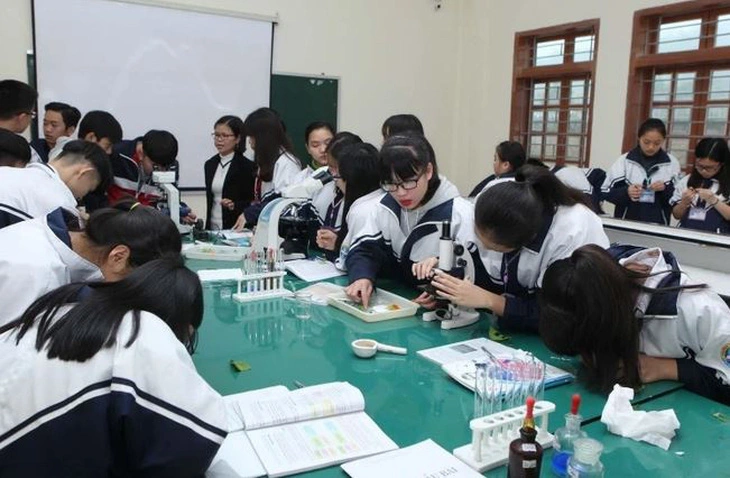Ho Chi Minh City and Son La City have recently been acknowledged as new members of the UNESCO’s Global Network of Learning Cities (GNLC), bringing the total number of Vietnamese localities in the system to five.
During a ceremony held in France on Wednesday, the UNESCO announced a list of 64 cities from 35 countries that have been recognized as members of the GNLC, the Vietnam News Agency reported, citing Ambassador Nguyen Thi Van Anh, Vietnam's permanent representative to the UNESCO.
Ho Chi Minh City serves as Vietnam's southern hub, while Son La is the capital city of a northern province sharing the same name.
Ambassador Anh highlighted that the UNESCO's recognition is not only a source of pride for Vietnam but also signifies international acknowledgment of the commendable efforts made by the cities in promoting lifelong learning among their local residents.
She asserted that this event reflects specific and appropriate measures in the implementation of policies and guidelines set by the Party and the state regarding international integration, promoting learning, and fostering talent.
This is aimed at building a learning society and elevating Vietnam's overall quality of education and human resources.
As such, Vietnam now boasts five localities within the GNLC, the diplomat added.
In 2020, Sa Dec City in the Mekong Delta province of Dong Thap and Vinh City in the north-central province of Nghe An gained admission to the network.
In 2022, another city in Dong Thap, Cao Lanh, also achieved the same status.
With the addition of the new members, the network currently includes 356 cities from 79 countries, benefiting more than 390 million people with lifelong learning opportunities.
Any candidate cities aspiring to join the GNLC will undergo a thorough and rigorous examination of their profiles by the UNESCO's leading independent experts in education.
The evaluation is based on 42 criteria related to the development of a city committed to lifelong learning.
In addition, the administration of a candidate city must be committed to facilitating lifelong learning for all its residents.
Cities that are GNLC members receive technical assistance from the UNESCO to facilitate the development of their learning cities.
They also benefit from favorable conditions to exchange ideas, knowledge, and experience with other members throughout the network.
Furthermore, these cities have opportunities to be nominated for the prestigious UNESCO Learning City Award.
The GNLC, initiated at the First International Conference on Learning Cities in Beijing, China in 2013, aims to foster international cooperation and unite cities in support of lifelong learning initiatives.
Over time, the network has emerged as a significant force in promoting global sustainable development through the promotion of lifelong learning at the city level.
Like us on Facebook or follow us on Twitter to get the latest news about Vietnam!


















































